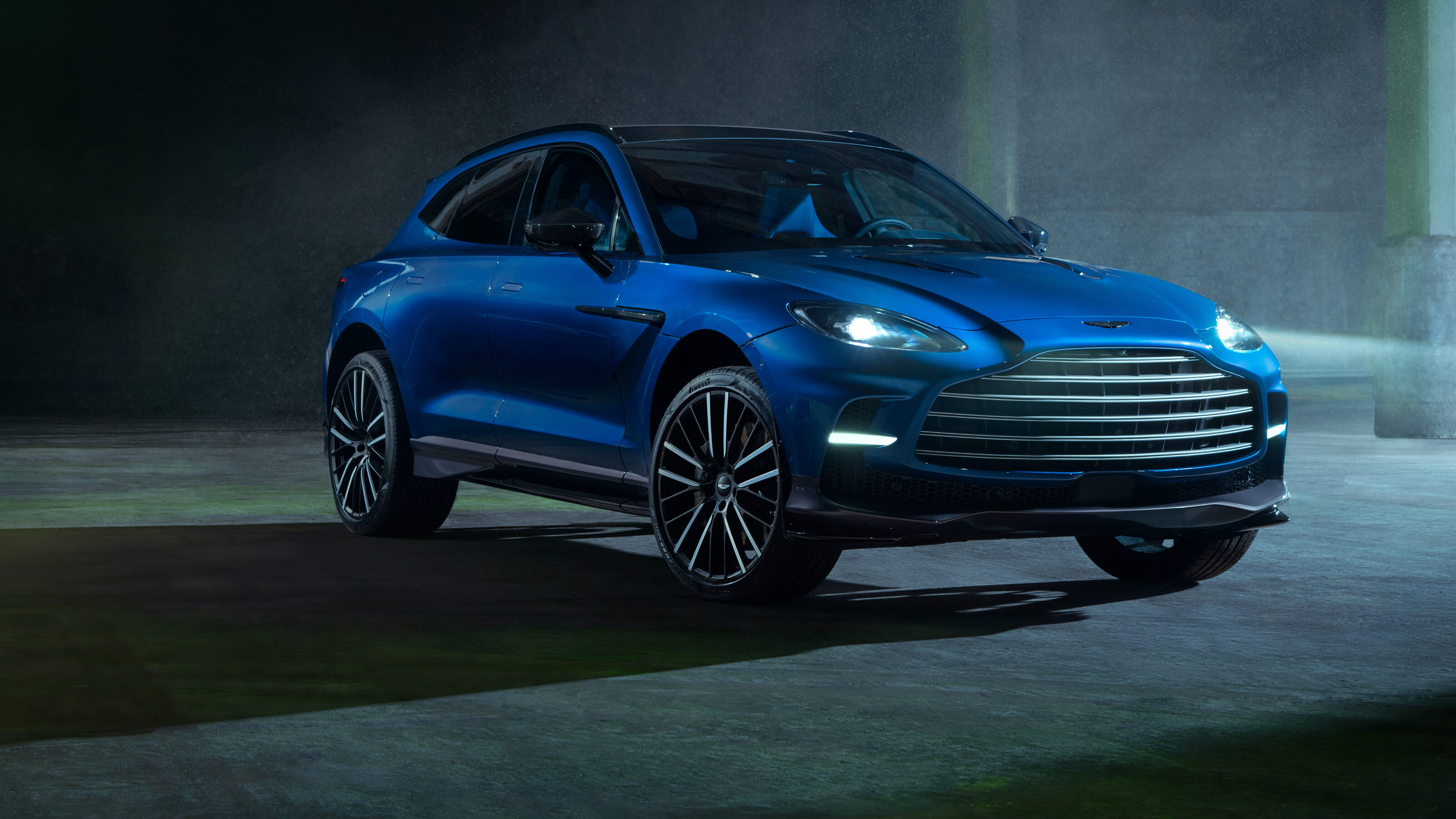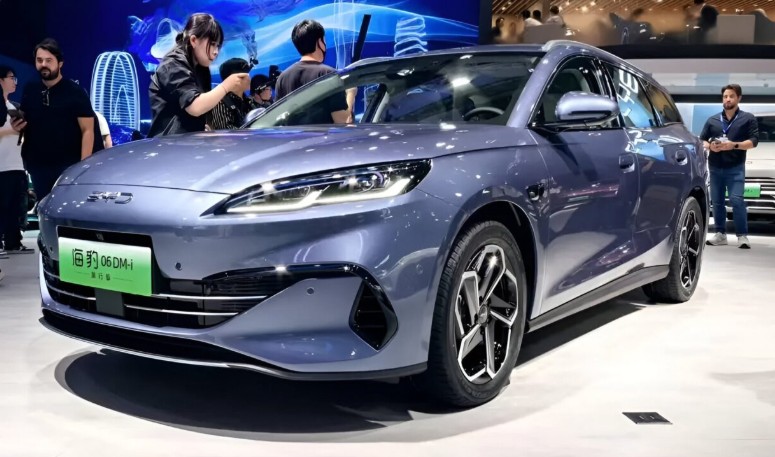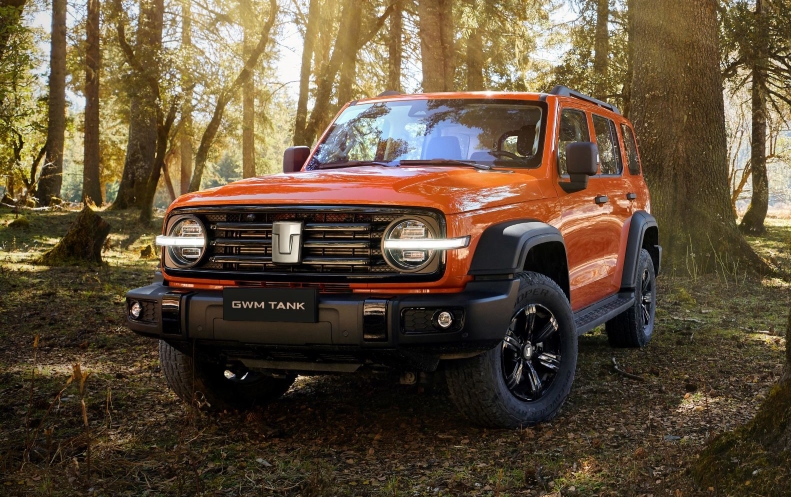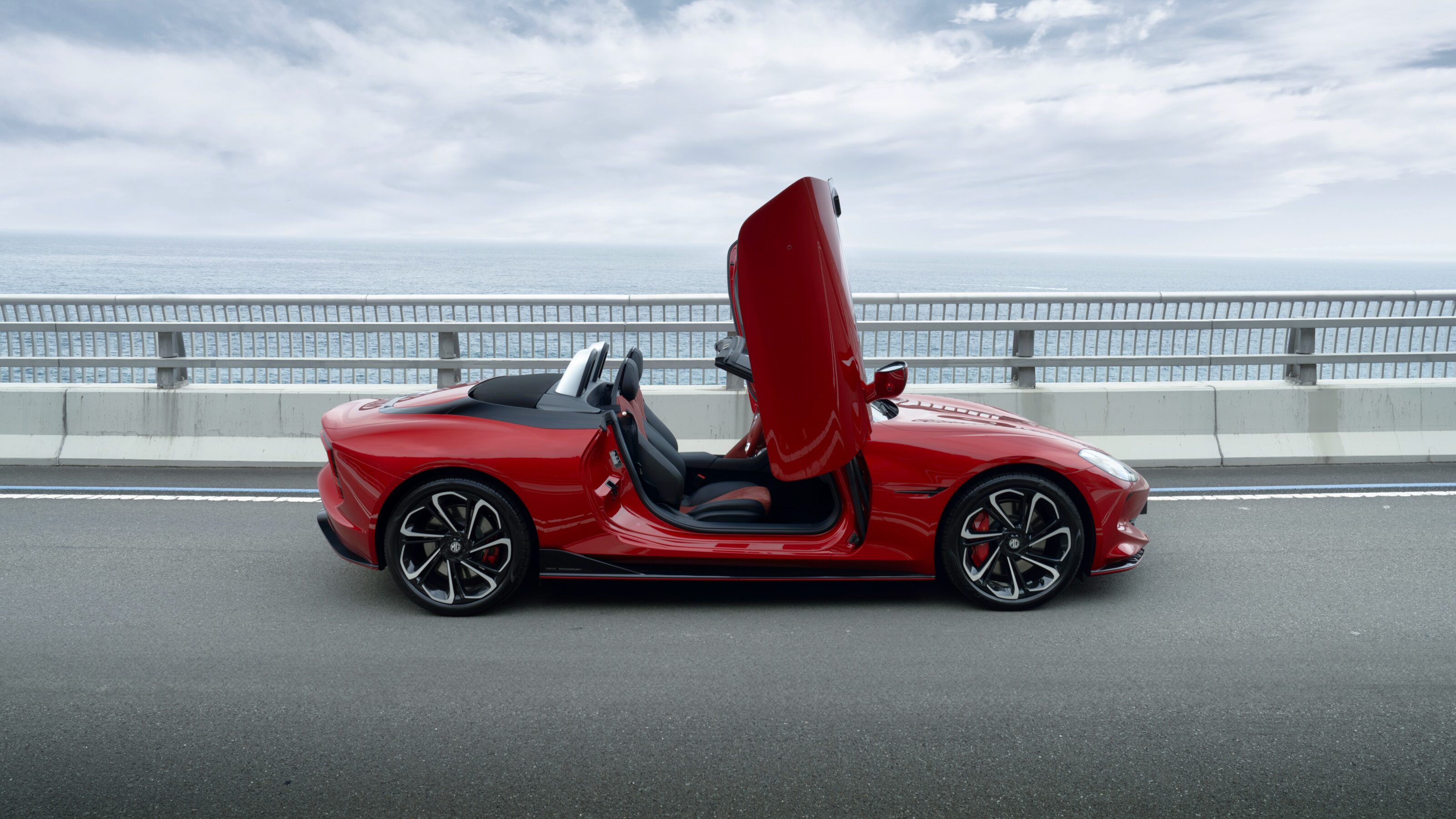Snapshot
- New DBX707 could cost in excess of $400,000
- 520kW twin-turbo V8 will make it Aston’s second-most powerful model
- Flagship SUV aims to take on Lamborghini’s Urus
Sign of the times: When the Aston Martin DBX707 arrives in Australia later this year, it will be the second most powerful of the mainstream production Astons currently available, beaten only by the snarling 533kW, V12-powered DBS Coupe and Volante.
The 707 suffix refers to the output, in the pferdestarken beloved of German engineers, of the AMG-sourced twin-turbo 4.0-litre V8 lurking under this DBX’s bonnet. That translates to 520kW, enough, says Aston Martin, to hurl this 2300kg all-roader to an autobahn-busting 310km/h. And those numbers make the DBX707 the fastest, most powerful SUV in the world, faster and more powerful even than the Lamborghini Urus, which packs a mere 478kW and can only hit 305km/h.
And that’s entirely the point. Forget supercars – super SUVs are where the money is these days.
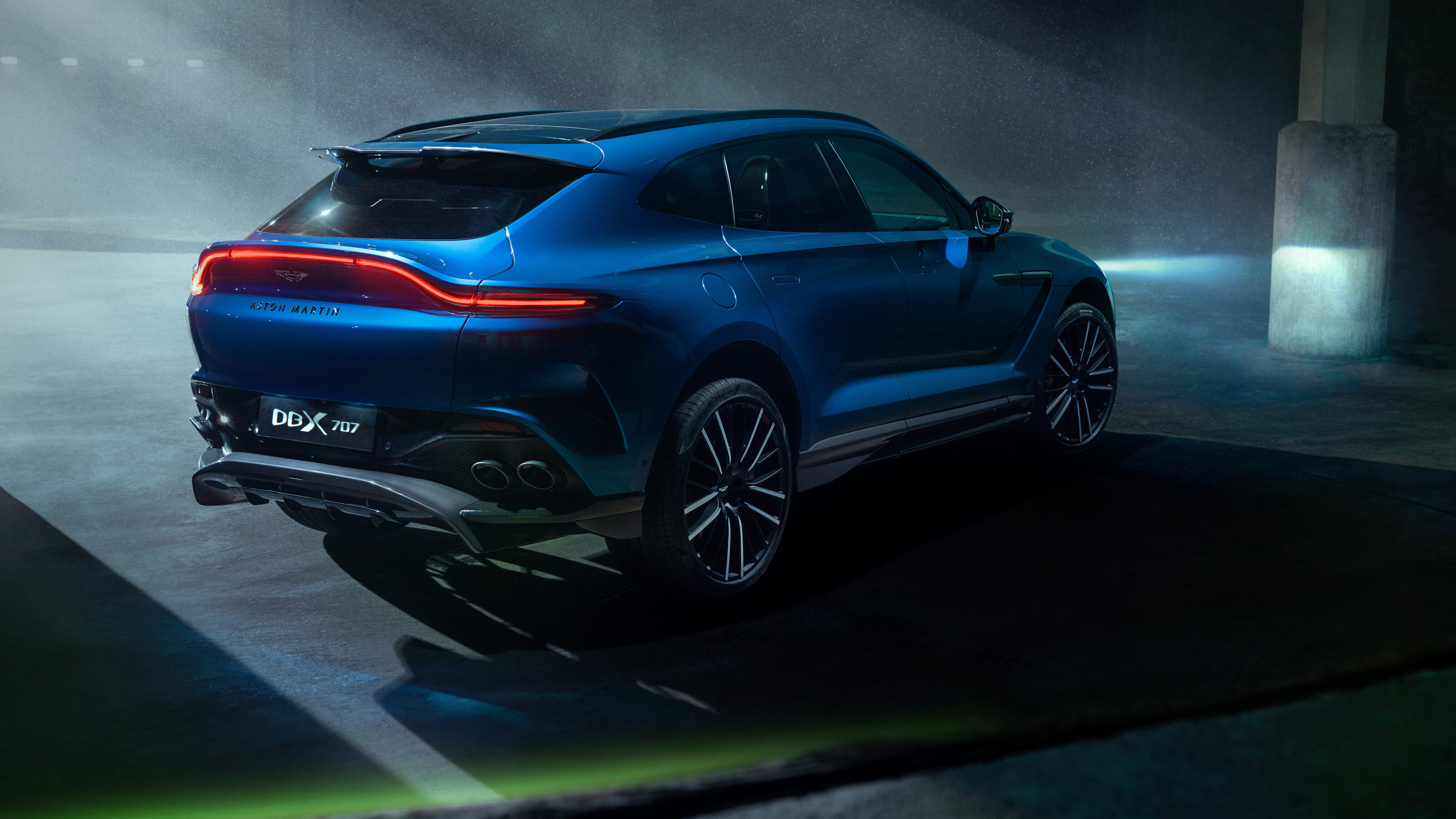
Former AMG chief Tobias Moers has had the Urus in his sights almost from the moment he arrived at Gaydon in August 2020 to take the top job at Aston Martin.
An ultra high-performance DBX, Moers realised, could be a relatively quick and easy win for the Aston brand while he worked to stabilise the business and sort out the troubled mid-engine sportscar programs. It had not escaped his attention that since its launch in 2018, the Urus had quickly become Lamborghini’s best-seller, accounting for more than a third of the company’s output; Lambo built its 10,000th Urus in mid-2020, the SUV reaching that production milestone in less than half time it had taken the Huraçan.
Moers had been pleasantly surprised by the DBX while doing his due diligence before accepting the Aston job. He thought the quality of its body engineering was impressive and, of course, he well understood the Urus-rivalling potential of its AMG-sourced powertrain.
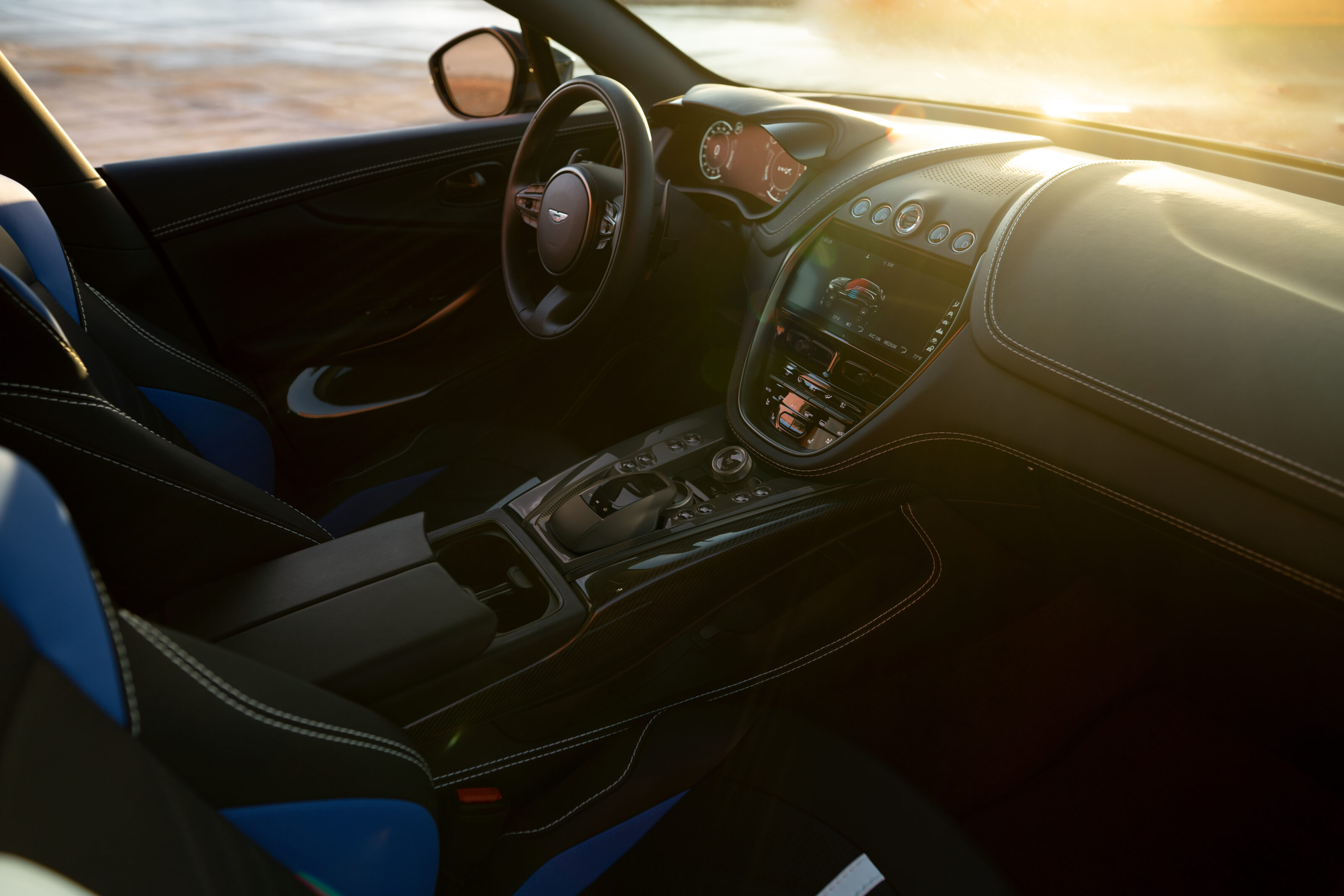
The heart of the DBX707 is a tweaked version of the versatile M177 V8 that powers a bunch of Mercedes-AMG road-rockets as well as Aston’s own DB11, Vantage and the regular DBX. In the regular DBX the engine makes 404kW and 700Nm. The 520kW pumped out by the DBX707’s version, which boasts twin-scroll turbochargers that spin on ball-bearings for faster response, is underpinned by a mighty 900Nm of torque.
All that extra grunt dictated a transmission upgrade to the Speedshift MCT wet clutch nine-speed automatic used in high-power, high-torque Mercedes-AMG models. The transmission includes a Sport+ mode with launch control and a full manual control mode. A new e-diff has been fitted at the rear to handle the extra torque and deliver a faster locking rate. The final drive ratio has been shorted by seven percent compared with the regular DBX to help get the DBX707 to 100km/h in about 3.6 seconds.
That’s the one metric where the Urus, which will hit 100km/h in 3.2 seconds, still rules. The 12-cylinder Bentley Bentayga Speed, which boasts 467kW and 900Nm, is also a couple of ticks quicker than the Aston to 100 clicks. Not that anyone will put that to the test. What more people will notice is how the DBX707 handles the corners, and to make sure it doesn’t disappoint, the suspension, chassis and brakes have been given myriad detail upgrades designed to improve handling response and grip.
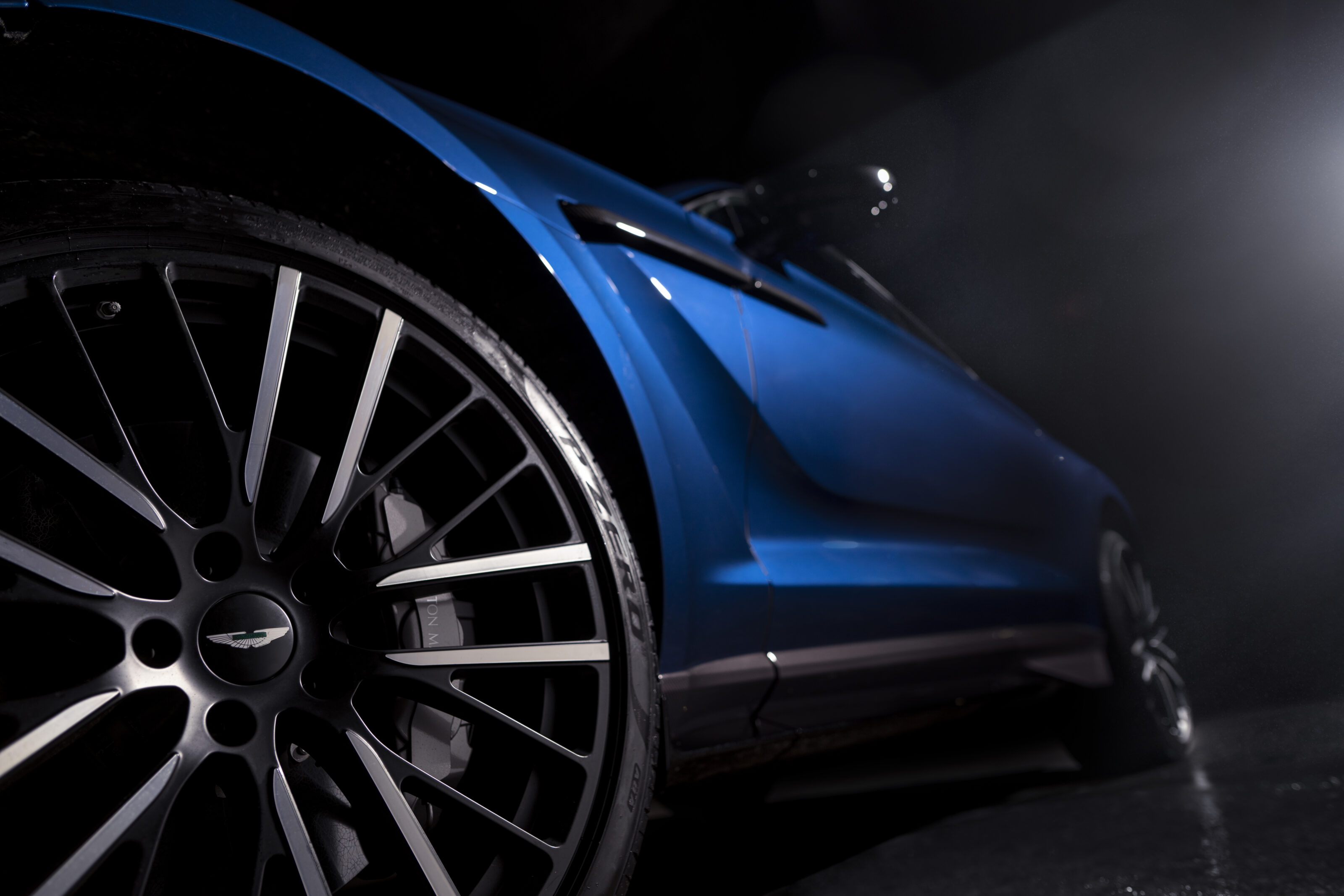
Compression and rebound damping have been respectively increased by 20 per cent and 10 per cent at the front end, and 15 per cent and five per cent at the rear. The electronic active roll system has been recalibrated to deliver 50 per cent more torque on low body motions, and the roll control is now more rear-biased at higher cornering speeds to reduce understeer.
The stiffness of the front shock top mounts has been upped 55 per cent with the addition of a cross brace and the front control arms have been fitted with hydrobushes to improve ride comfort and bump isolation without compromising dynamic performance. A 4mm underbody panel has increased torsional stiffness 1.3 per cent to improve steering response and impact control.
Standard brakes are 420mm front and 390mm rear carbon-ceramic rotors. Standard wheels are 22-inch alloys, shod with Pirelli P-Zero tyres. A new 707-exclusive 23-inch wheel design is available as an option.
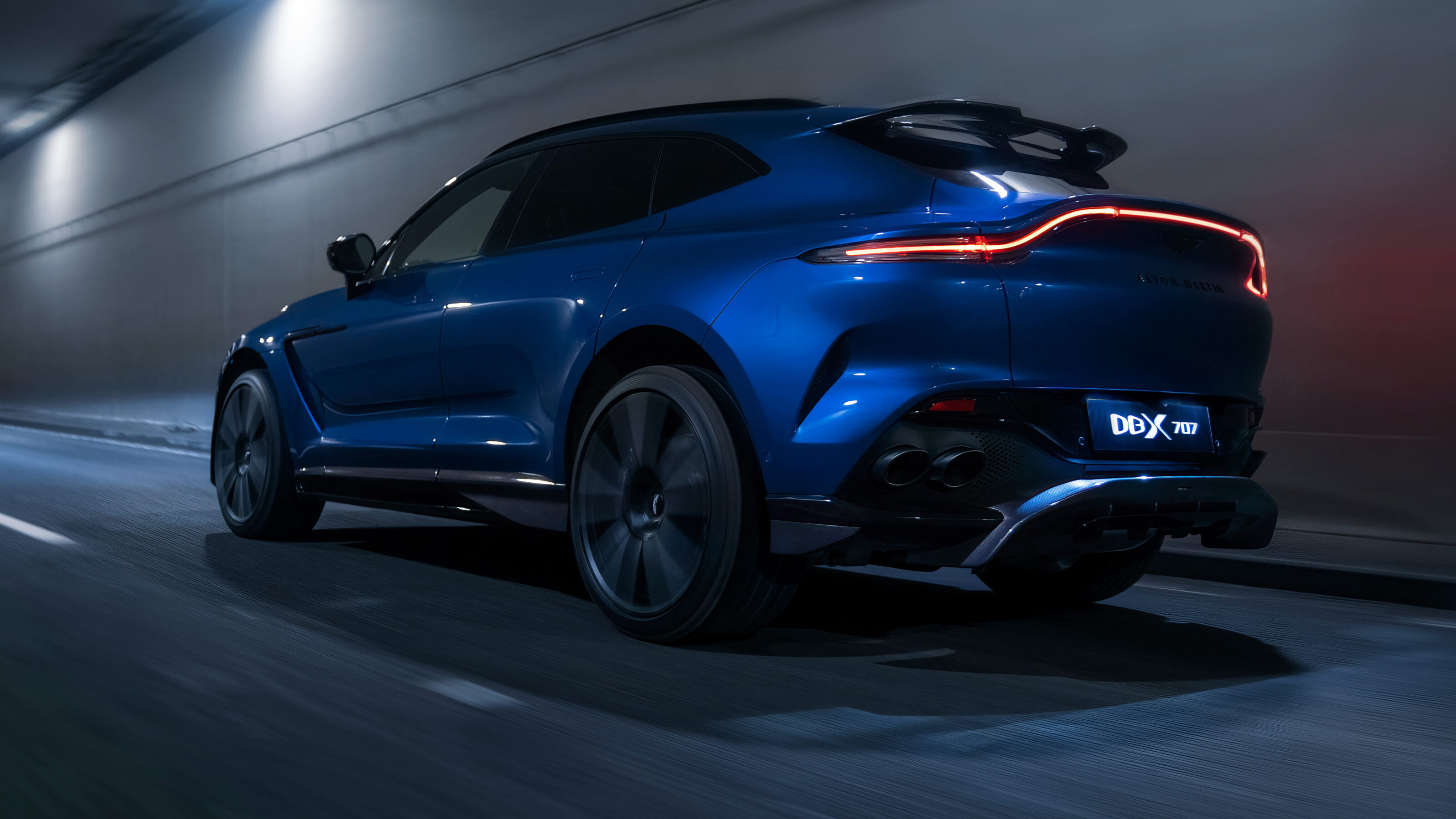
With those dynamic upgrades, and given the DBX707’s V8 is mounted further back in the chassis than the Urus’s engine and its overall mass is about nine percent less than that of the Bentayga Speed, there’s no reason why this Aston shouldn’t be the most entertaining of these super-sport SUVs through the twisty bits.
Grafting iconic sportscar graphics onto a big two-box SUV is a challenge but chief creative officer Marek Reichmann’s team of designers have, by and large, succeeded in making the regular DBX look as glamourous as the rest of the Aston Martin family. The DBX707 adds muscle to the glamour.
A new front fascia features a bigger, bolder grille, larger cooling intakes for the brakes and a more aggressive front splitter. The rear fascia is new, too, with quarter panel vents integrated into the bumper and a large diffuser underneath flanked by dual exhaust outlets. A larger spoiler extends from the trailing edge of the roof.
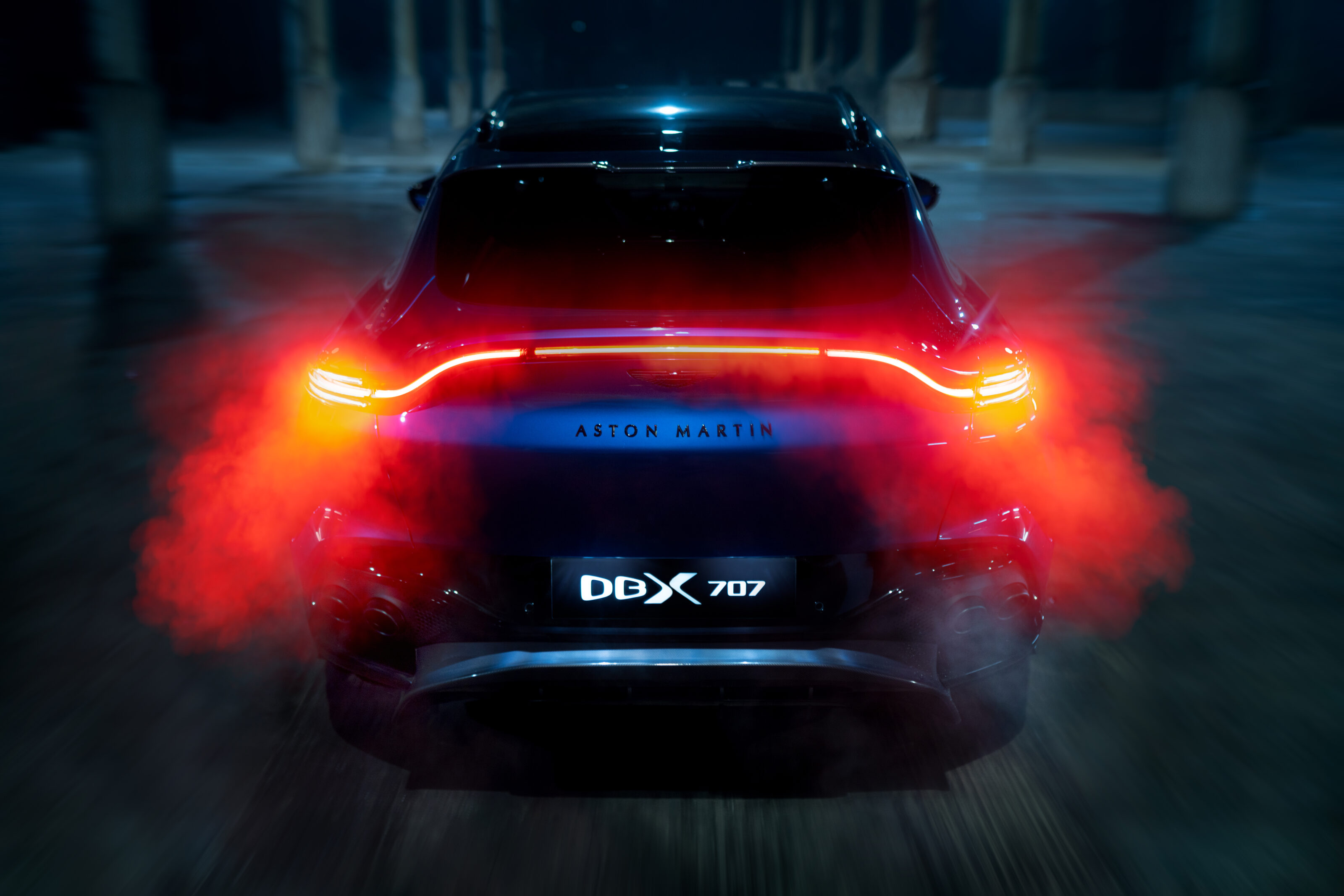
The aggressive styling details don’t compromise practicality, though: Front and rear departure angles remain the same as the standard DBX, and the 707 can be ordered in Europe with a retractable tow bar.
Inside, the DBX707 can be ordered with either sport or comfort front seats, the former offered with a unique herringbone perforation pattern on the backrest and squab. A vertically mounted rotary controller has been added to the cenre console to allow rapid selection of different drive modes.
The Aston Martin DBX707 is expected to arrive in Australia later this year. No word on price yet, but if the UK market is any guide, don’t expect much change from $400,000.


